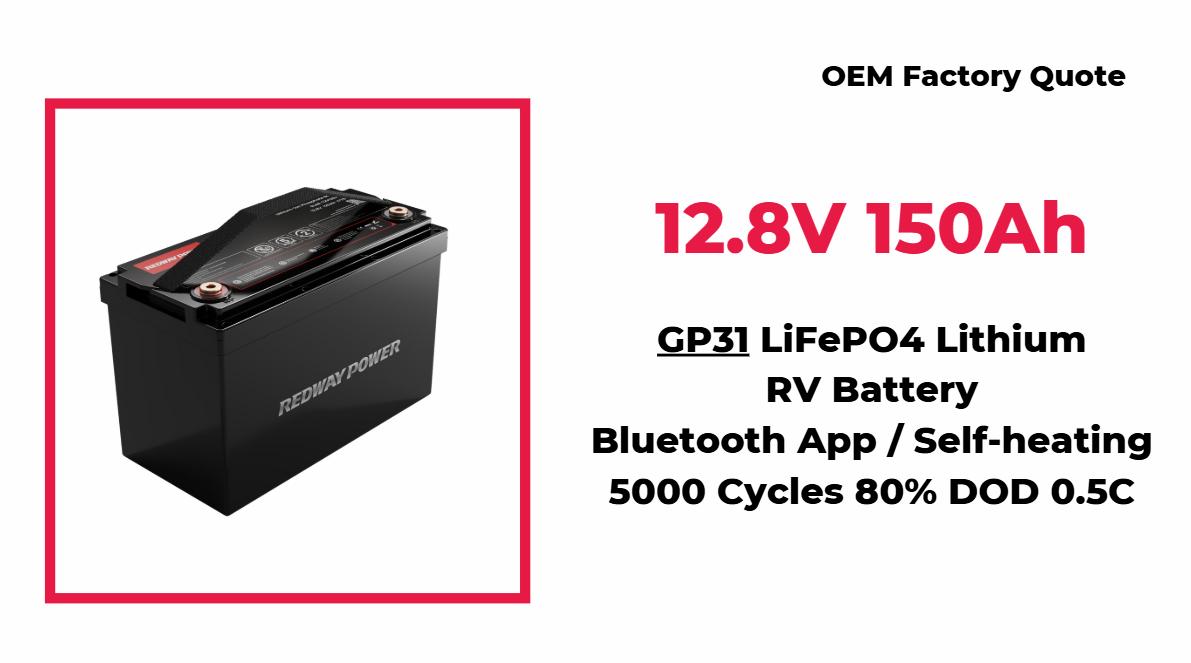Battery group sizes refer to standardized dimensions and terminal configurations that define how batteries fit into specific applications, including recreational vehicles (RVs). Understanding these sizes is essential for selecting a battery that meets your energy needs while fitting securely in your RV.
How Do Different Types of Batteries Impact Group Size Selection?
Different types of batteries, such as lead-acid and lithium, have varying physical dimensions and capacities, impacting group size selection. Lead-acid batteries are typically larger and heavier, requiring more space, while lithium batteries are more compact and lightweight. Choosing the right battery type ensures compatibility with your vehicle’s battery compartment and meets power needs effectively.
Chart Title: Comparison of Battery Types
Wholesale lithium golf cart batteries with 10-year life? Check here.
| Type | Size Range (Group) | Lifespan (Years) | Weight (lbs) |
|---|---|---|---|
| Lead-Acid | 24-31 | 3-5 | 40-70 |
| AGM | 24-31 | 4-7 | 50-80 |
| Lithium | 12V, 100Ah | 10+ | 30-50 |
What Are Common Battery Group Sizes Used in RVs?
Common battery group sizes used in RVs include Group 24, Group 27, Group 31, and 6V GC2 batteries. Group 24 is suitable for smaller RVs, while Group 27 offers a balance for medium-sized RVs. Group 31 is ideal for larger RVs with higher power demands, and 6V GC2 batteries are often used in pairs for extended capacity.
Chart Title: Common RV Battery Group Sizes
Want OEM lithium forklift batteries at wholesale prices? Check here.
| Group Size | Dimensions (inches) | Amp-Hours (Ah) |
|---|---|---|
| Group 24 | 10.25 x 6.75 x 9 | 70-85 |
| Group 27 | 12 x 6.75 x 9 | 90-110 |
| Group 31 | 12 x 6.8 x 9 | 100-130 |
How Do You Calculate Your Power Needs for an RV?
To calculate your RV’s power needs, list all appliances and their wattages. Multiply the wattage by the hours each appliance will be used daily to get total watt-hours. Then, consider surge requirements for appliances like air conditioners. This will help you determine the necessary battery capacity to support your energy needs.
What Factors Should You Consider When Choosing a Battery Size?
When choosing a battery size, consider your RV’s power requirements, the number of appliances you plan to use, and how long you’ll be off-grid. Additionally, evaluate the physical dimensions of the battery compartment and the type of battery technology (lead-acid vs. lithium) to ensure compatibility and optimal performance.
Check: Battery Group Size Chart Guide
How Do Temperature Conditions Affect Battery Performance?
Temperature conditions significantly affect battery performance; cold temperatures can reduce a battery’s capacity and efficiency while hot temperatures can accelerate wear. Batteries may struggle to deliver sufficient power in extreme cold, making it essential to select batteries rated for your typical climate conditions to ensure reliable operation.
What Are the Advantages of Lithium Batteries Over Lead-Acid?
Lithium batteries offer several advantages over lead-acid batteries, including longer lifespan, faster charging times, lighter weight, and deeper discharge capabilities without damage. They also perform better in extreme temperatures and have a higher energy density, making them ideal for RV applications where space and weight are critical considerations.
How Can You Extend the Lifespan of Your RV Batteries?
To extend the lifespan of your RV batteries, regularly check and maintain proper charge levels, avoid deep discharges, and keep terminals clean. Use a smart charger to prevent overcharging and ensure proper ventilation during charging. Additionally, store batteries in a cool, dry place when not in use to minimize degradation.
Conclusion
Choosing the right battery group size is fundamental for optimal performance in recreational vehicles. By understanding different types of batteries and their specifications, you can make informed decisions that enhance your RV experience.
Expert Views
“Selecting the appropriate battery group size is crucial not just for performance but also for safety while on the road,” says an expert from Redway.
FAQ Section
- What are battery group sizes?
Battery group sizes refer to standardized dimensions that define how batteries fit into specific applications like recreational vehicles. - Why does choosing the right battery size matter?
Choosing the correct battery size ensures that your RV has sufficient power capacity while fitting securely within its designated space. - How can I calculate my power needs for an RV?
To calculate power needs, assess all electrical devices you plan to use and sum their wattage requirements over time.






